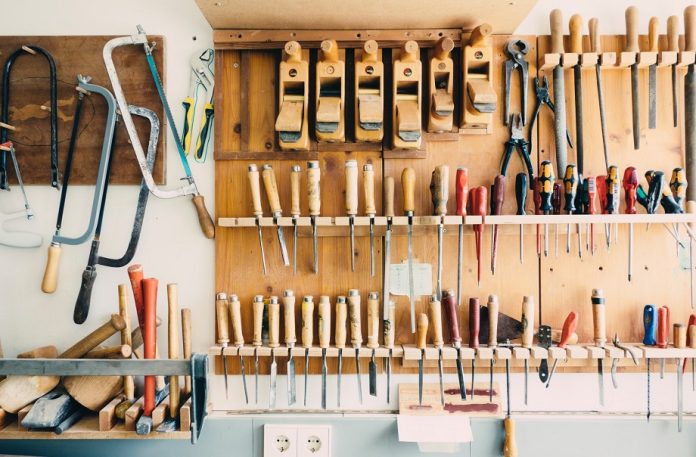Are you getting ready to build a workshop on your property, either for business or personal use? If so, you probably know it’s going to be a big undertaking and there are many things to consider.
For instance, you’ll need to think about building permits, plumbing, electricity, and of course, the type of building you want.
- Consider building a metal workshop
Have you thought about making your workshop out of metal? Metal is durable, long-lasting, and can be used to make large areas without needing many support columns that take up usable space.
In addition to durability, there are countless benefits to having a metal workshop. Not only is metal easy to build with, but it’s also affordable and easy to assemble.
However, you don’t need to assemble your own building – you can hire a pro for that. Depending on your design, you can buy a prefab metal building and have it assembled on your property in one day.
It’s easy to source metal buildings as well. For instance, metal building contractors in Utah and other local areas are easy to work with and will connect you to a dealer that can meet all of your needs.
- Consider electrical hookups
If you’re going to have a workshop outside, you’ll need to install new electrical hookups, but where? The layout of your shop will determine the location of your electrical hookups. For instance, you might need to use electricity in one specific location more than others, which means you’ll want your hookups in that area.
Think about the placement of your electrical outlets ahead of time to avoid having to string multiple extension cords across the floor or overhead. You’ll probably need to do this to some degree, but intentionally placing your electrical outlets will cut down on the frequency.
- Do you need a floor? What kind?
Some workshop buildings and sheds don’t come with a floor, so you’ll need to figure out if you need one – and if so, what kind? A simple plywood floor will be sufficient for most needs, but if you have anything heavy, you may want to consider pouring a concrete foundation. Both will be easy to sweep and mop, but only concrete will hold sufficient weight.
Although having a floor is ideal regardless of how you use your workshop, there are some circumstances that make having a floor non-negotiable. For instance, if you’re going to make a mess in your workshop, or if the wind might blow the dirt around, a floor is an absolute must.
- Do you need a restroom?
If your workshop is just a simple, small area for you to work out in your backyard, you probably don’t need a restroom inside. However, you might need a restroom if your building is large, you need to be out there for long periods of time, you’re going to be working with contractors, or you don’t want to bother running back into your main building.
Installing a restroom in your workshop will require a permit from the city even if you install your own septic, so make sure you get that before you hire a contractor. When you build your restroom, consider that someone with limited mobility might use it in the future. Make the door and inside space wide enough for a wheelchair, install grab bars, and don’t make the toilet too low.
- Get all of your required permits
In the majority of U.S. cities, you’ll be required to get several permits to build a workshop on your land. However, there are exceptions. Some states don’t require a permit to build a small structure when it’s being used to store tools or for other light uses. Although, if you want to add electricity or plumbing, you’ll still need a permit.
Even if you think you know what permits you need, it’s not worth the risk of being wrong. Always contact your local agencies to find out what you need. You may have to explain your project in detail to get a definitive answer, and that’s always worth the extra effort.
The last thing you want is for an inspector to force you to tear down your project if you can’t fix what wasn’t built correctly.
Create your dream workshop
You deserve to have a workshop you’ll love, so create it well. Don’t skip the amenities just to save a few bucks. Get plumbing, install an HVAC system, and create a space you’ll enjoy working in year-round.


